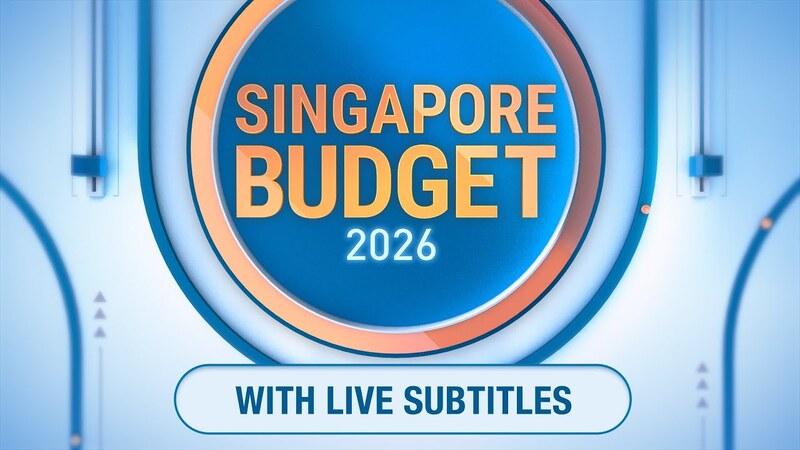Unlocking Singapore's Workforce: Navigating Key Changes Ahead
Singapore's dynamic business landscape is set for a significant shift as the government introduces updates to its foreign work pass system. These changes, slated to take effect from 2025 onwards, are poised to impact both companies and workers in various sectors. Here, we delve into the top five ways these changes will influence Singapore businesses and employees.
1. Adjustments in Salary Thresholds
One of the most notable adjustments involves an increase in the minimum qualifying salary for new Employment Pass (EP) applicants. Starting from January 1, 2025, the minimum monthly salary requirement for EP applicants will rise to S$5,600. This increment aims to ensure that the cost of hiring foreign talent remains aligned with the wage standards of local professionals. Furthermore, individuals in the financial services sector will face a higher threshold, set at S$6,200 per month. These adjustments underscore the government's commitment to maintaining a level-playing field for local and foreign workers alike.
2. Impact on Hiring Practices
With the rise in salary thresholds, companies may need to reassess their hiring strategies. Employers relying heavily on foreign talent, may face increased recruitment costs. Consequently, businesses might prioritise local talent recruitment to mitigate expenses associated with meeting the new salary requirements. This shift could lead to a more competitive job market for Singaporean professionals seeking employment opportunities.
3. Encouraging Skills Development and Innovation
In tandem with the adjustments in salary thresholds, the government is fostering initiatives to promote skills development and innovation among local workers. Programs such as the Global Business Leaders Programme and the Overseas Market Immersion Programme aim to equip Singaporean employees with valuable overseas work experience and expertise. By investing in skills enhancement initiatives, companies can cultivate a pool of skilled local talent capable of driving innovation and growth.
4. Enhancing Workforce Diversity and Fair Employment Practices
The implementation of the Complementarity Assessment (Compass) framework underscores the government's commitment to promoting fair employment practices. By evaluating both individual applicants and prospective employers, Compass aims to ensure that work pass holders contribute positively to Singapore's economy. Moreover, the framework incentivizes firms to prioritise roles facing acute occupational shortages, thereby enhancing workforce diversity and addressing skills gaps.
5. Embracing Global Talent and Economic Growth
Singapore's efforts to attract top global talent through initiatives like the Overseas Networks and Expertise (ONE) Pass highlight the city-state's commitment to fostering economic growth and innovation. By welcoming foreign professionals with diverse skill sets and expertise, Singapore can bolster its position as a global hub for business and technology. Additionally, foreign talent influx can catalyse job creation and entrepreneurship, contributing to Singapore's long-term economic resilience.
In conclusion, the upcoming changes in Singapore's work pass system signify a strategic move towards fostering a skilled, diverse, and competitive workforce. While these adjustments may pose challenges for companies in the short term, they also present opportunities for innovation, skills development, and sustainable economic growth. By navigating these changes adeptly, Singapore businesses and workers can emerge stronger and more resilient in the global marketplace.
Looking to Hire?
Please fill in this Inquiry Form — our Recruitment Consultants will be in touch with you soon!
OR
Seeking Your Next Career Opportunity?
Submit your CV — Our trusted Career Consultants will review your resume and contact you if we find a position that matches your profile!
Disclaimer:
The information provided in our blog articles is intended for general informational purposes only. It is not a substitute for professional advice and should not be relied upon as such.
While we strive to provide accurate and up-to-date information, the ever-evolving nature of certain topics may result in content becoming outdated or inaccurate over time. Therefore, we recommend consulting with qualified professionals or experts in the respective fields for specific advice or guidance. Any actions taken based on the information contained in our blog articles are solely at the reader's discretion and risk. We do not assume any responsibility or liability for any loss, damage, or adverse consequences incurred as a result of such actions.
We may occasionally provide links to external websites or resources for further information or reference. These links are provided for convenience and do not imply endorsement or responsibility for the content or accuracy of these external sources. Our blog articles may also include personal opinions, views, or interpretations of the authors, which do not necessarily reflect the views of our organisation as a whole. We encourage readers to verify the accuracy and relevance of information presented in our blog articles and to seek professional advice when needed.
Your use of this website and its content constitutes acceptance of this disclaimer.
Reference Links:
https://www.channelnewsasia.com/singapore/employment-pass-minimum-qualifying-salary-increase-4168591





